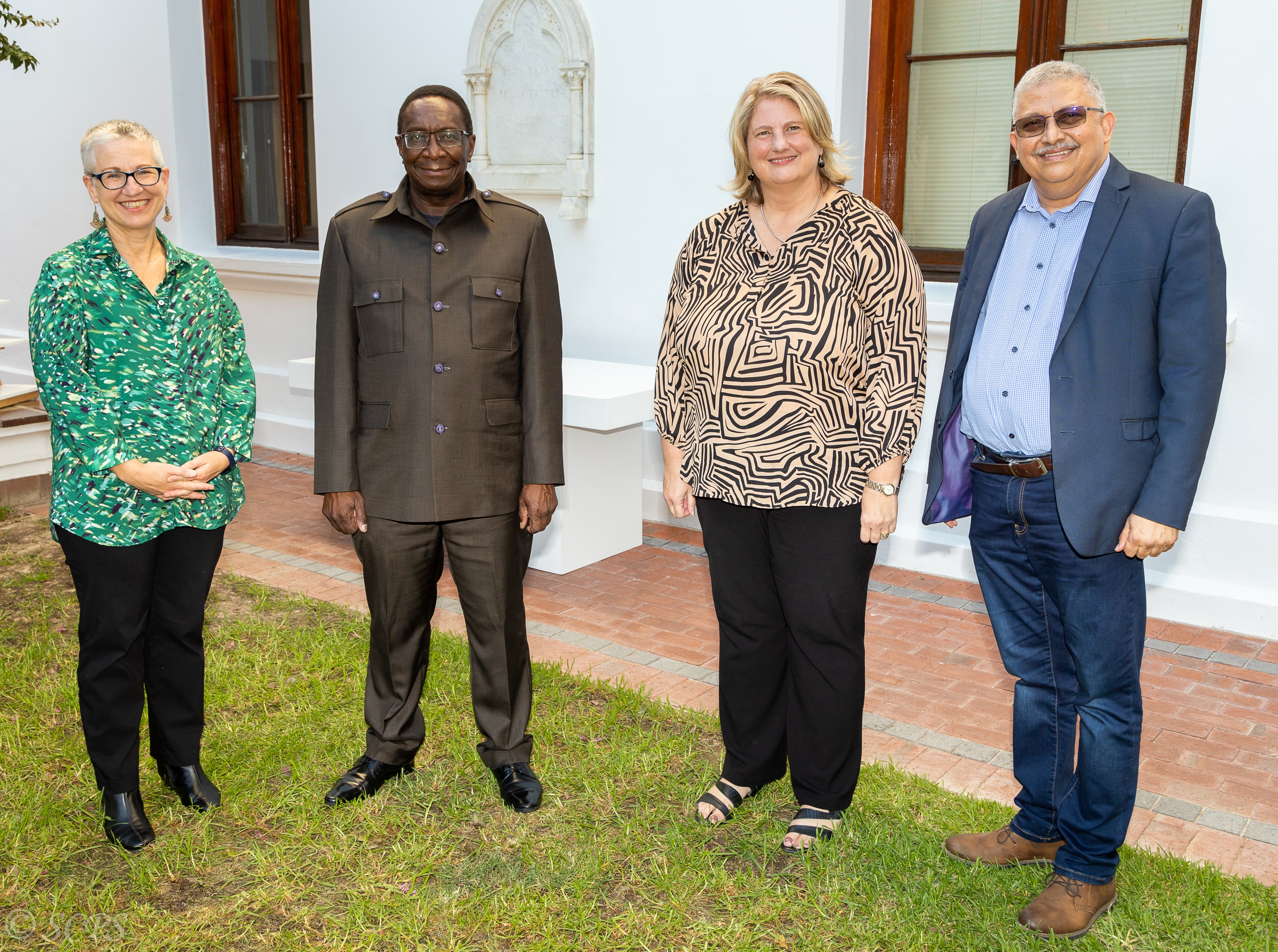
‘Not judiciary’s fault that SA’s constitutional transformative agenda has failed’ – Judge Dunstan Mlambo
It would be wrong to blame our courts and judges for the lack of social and economic transformation in South Africa.
This was one of the viewpoints of Gauteng Judge President Dunstan Mlambo who delivered the 16th Annual Human Rights Lecture at the Faculty of Law at Stellenbosch University (SU) on Thursday 24 March 2022. The lecture, themed Transformative Social Change and the Role of the Judge in Post-Apartheid South Africa, was organised by the HF Oppenheimer Chair in Human Rights Law at SU, Prof Sandy Liebenberg, together with the Dean of the Faculty of Law, Prof Nicola Smit.
In his speech, Judge Mlambo said it is counterproductive to seek to find blame in what the courts are mandated by the Constitution. He added that it is not the judiciary's fault that our constitutional transformative agenda has failed.
“One searches in vain for policies and other transformative problems that have been stymied by the courts. All that the courts have done is to point to deficiencies in policies that have come before and referred these back for improvement in line with constitutional dictates."
According to Mlambo, the failings of our transformative agenda reside elsewhere in our constitutional governance framework.
He made these remarks in light of recent attacks on the judiciary.
“Currently, there are themes that seek to suggest that our Constitution has been a failure in that it has not resulted in better living conditions for the poor masses; there are themes that suggest that judges and courts have become a “Juristocracy" [sic] that impedes the socioeconomic development of the poor masses; there are yet other themes that suggest that courts and judges, unelected as they are, have become too powerful and must be reined in and that South Africa could do better under a parliamentary supremacy framework."

Mlambo added: “Propagating these themes are predominantly party-political members, members of parliament, members of the executive in the different spheres of government who openly decry the power of judges and courts."
He said the different spheres of government need to function well for the Constitution to deliver on its promise.
“For social and economic transformation, including growth to translate into social and economic parity and development, the state, as the duty-bearer, must adopt rights-informed legislation and social justice policies that follow a distributional pattern of focusing on the poor and ensure the availability of financial and human resources for the implementation of such policies.
“Courts and judges are but one of the three arms of government and holds the others to the boundaries of their power prescripts."
Mlambo said that if we want to solve our country's developmental problems, we'll have to get back to our constitutional principles and deliverables.
“Our Constitution is human rights-based, forward looking, and arms us with developmental tools to advance its constitutional project. This behoves all of us, not just courts and judges, to realise this. We should all realise that political hostility towards the courts and judges will in time delegitimise the courts and that will sound the death knell to our constitutional transformative project as a nation."
Main photo: Judge Dunstan Mlambo delivers the Human Rights Lecture. Photo 1. Prof Sandy Liebenberg (HF Oppenheimer Chair in Human Rights Law), Judge Dunstan Mlambo, Prof Nicola Smit (Dean of the Faculty of Law) and Prof Nico Koopman (Deputy Vice-Chancellor: Social Impact, Transformation and Personnel) at the event.
